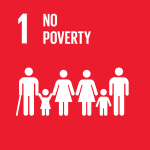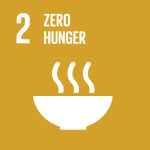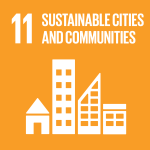
With approximately 70% of Liberia’s population reliant on natural resource-based livelihoods, agriculture and fisheries have the potential to drive growth and reduce poverty for the foreseeable future, particularly when transformative technologies and inclusive approaches are integrated into the sector to boost and sustain productivity as well as developing value chains and alternative livelihoods.
However, despite this potential, natural resource-based livelihoods’ productivity in Liberia falls well below the global average, resulting in around 70% of Liberians experiencing multi-dimensional poverty and high incidences of food insecurity. These challenges are expected to be exacerbated by climate change, with increasing temperatures, shifting rainfall seasonality and more frequent and intense extreme events threatening the productivity of climate-sensitive sectors like rain-fed agriculture and artisanal fisheries.
This 5-year project (2025 – 2030) will introduce a systemic, integrated adaptation approach to build resilience of communities and food production systems in the country. This approach will employ nature-based solutions to address climate vulnerabilities of rural livelihoods. In doing so, the project will not only restore degraded ecosystems, but also work with local authorities, communities and the private sector to address the drivers of degradation and incentivise sustainable livelihood practices among vulnerable communities. These actions will be supported by the development of sustainable alternative livelihoods that reduce the uptake of maladaptive practices, with a focus on productive and inclusive value chains and green enterprise development – underpinned by innovative finance mechanisms that unlock private sector investment.
It will build on lessons learned from successful pilot initiatives in the agriculture, fisheries and ecotourism sectors that have developed coastal and agricultural resilience in the country, as well as integrating indigenous knowledge with innovative and adaptive practices to achieve sustainable outcomes.
- Community
- Municipality
- District
- National
- Country Office
- Local Governments
- National Governments
- Non-Governmental Organizations
- Private Sector Partners
- United Nations Development Programme (UNDP)
99,460 people (male: 43,400 | female: 56,060)
- United Nations Development Programme (UNDP)
- Global Environment Facility (GEF)
- Liberia EPA
Expected outcomes
Component 1: Investment in conserving the agro-ecological landscape and food production systems
Outcome 1: Improved management of the agro-ecological landscape through nature-based solutions and climate-resilient food production technologies for small-holder farmers and fishers.
Component 2: Climate-resilient livelihoods, ecotourism, and value chain development
Outcome 2: Alternative, climate-resilient livelihoods, including ecotourism, supported by improved market access and value-added services in agricultural and coastal areas.
Component 3: Innovative finance
Outcome 3: Innovative financing architecture incentivises private sector investment in climate-resilient agricultural technologies, livelihoods, and enterprises.
- Image

- Image

- Image

- Image

- Image

- Image

- Image

Increasing temperatures, shifting rainfall seasonality and more frequent and intense extreme events driven by climate change are threatening the productivity of climate-sensitive sectors like rain-fed agriculture and artisanal fisheries in Liberia. Given that approximately 70% of the population is reliant on such livelihoods, climate change poses a significant threat to national efforts towards poverty reduction, food security, livelihoods, and sustainable development.
The climate impacts facing the country are diverse and interconnected, with compounding linkages between climate hazards, impacts, and baseline drivers. Among the biggest climate threat is changes in rainfall seasonality and intensity, with more frequent and intense storms creating flood risks that damage crops and infrastructure, while the associated increase in surface runoff drives erosion, leeching out critical soil nutrients and contaminating waterways with sediments and pollution from agricultural runoff. In coastal regions, both the flood risk and erosion are exacerbated by sea level rise, with storm surges posing a considerable threat to coastal communities. Moreover, the combined impact of sediment-loaded and polluted waters flowing downstream from degraded rivers and extensive coastal erosion is threatening critical coastal wetlands which act as nursery grounds for the fish species important for the economy – highlighting the connected nature of coastal and inland ecosystems. In response to these challenges, many Liberians, particularly in rural areas, resort to maladaptive coping mechanisms to survive – often leading to extensive environmental degradation and the loss of critical ecosystem services that are needed to minimise the impacts of climate change.
To address the climate change impacts in Liberia, the proposed project will introduce a systemic, integrated adaptation approach to build resilience of communities and food production systems in the country. This approach will employ nature-based solutions (for example, active restoration, assisted natural regeneration, and conservation practices in forest, wetland and coastal ecosystems, supplemented where needed with hybrid green-grey solutions) to address climate vulnerabilities of rural livelihoods. In doing so, the project will not only restore degraded ecosystems, but also work with local authorities, communities and the private sector to address the drivers of degradation and incentivise sustainable livelihood practices among vulnerable communities, including marginalized and excluded groups. These actions will be supported by the development of sustainable alternative livelihoods that reduce the uptake of maladaptive practices, with a focus on productive and inclusive value chains and green enterprise development – underpinned by innovative finance mechanisms that unlock private sector investment.
The project will build on lessons learned from successful pilot initiatives in the agriculture, fisheries and ecotourism sectors that have developed coastal and agricultural resilience in the country, as well as integrating indigenous knowledge with innovative and adaptive practices to achieve sustainable outcomes. The innovation lies in the systems-based approach which leverages best practices from multiple sectors in a single, integrated system. By targeting coastal and inland counties together, the project will address the intricate linkages and co-dependencies between the upstream and downstream systems (source-to-sea), along with the impacts of climate hazards, flooding in particular, on food production systems and other natural resource-based livelihoods. This will represent a shift away from traditional adaptation approaches that generally target coastal and inland ecosystems as distinct and isolated systems, despite the intricate connectivity between the two. Moreover, the interventions will be underpinned by a strong knowledge and capacity development focus which will enable local government agencies, civil society and the private sector to not only sustainably manage the project interventions in the long term, but also to learn from and replicate the model across the country.
Component 1: Investment in conserving the agro-ecological landscape and food production systems
Outcome 1: Improved management of the agro-ecological landscape through nature-based solutions and climate-resilient food production technologies for small-holder farmers and fishers.
Output 1.1. Coordination mechanisms established to build institutional capacity for cross-sectoral coordination and integrated management of the agro-ecological landscape.
Output 1.2. NbS implemented in degraded forest and wetland ecosystems to safeguard ecosystem services.
Output 1.3 Climate-resilient agriculture and fisheries practices promoted in vulnerable rural communities through training and awareness.
Output 1.4 Extension Services strengthened and diversified to deliver advisory services to farmers and fisherfolk on climate-resilient practices.
Output 1.5 Communication Strategy developed to raise awareness and disseminate best practices for climate-resilient agriculture and fisheries
Component 2: Climate-resilient livelihoods, ecotourism, and value chain development
Outcome 2: Alternative, climate-resilient livelihoods, including ecotourism, supported by improved market access and value-added services in agricultural and coastal areas.
Output 2.1. Sustainable climate-resilient livelihoods and agricultural and fisheries value chains and enterprise development in target communities through provision of training, and start-up inputs.
Output 2.2. Alternative livelihoods established (with participation of at least 50% women) and linked with agricultural and fisheries value chains.
Output 2.3. Business development tools and guidance delivered to build technical and financial capacity of MSMEs.
Component 3: Innovative finance
Outcome 3: Innovative financing architecture incentivises private sector investment in climate-resilient agricultural technologies, livelihoods, and enterprises.
Output 3.1. Establishment of private sector engagement facility with new funding windows opened under the UNDP Growth Accelerator Platform
Output 3.2. Partnerships established between private sector (MSMEs, cooperatives) partners, communities, and other stakeholders.
Output 3.3. Partnerships with larger commercial agriculture, agro-processing, and ecotourism corporations facilitated for climate resilient livelihoods.
Muyeye Chambwera, Regional Technical Advisor, Climate Change Adaptation, UNDP muyeye.chambwera@undp.org





